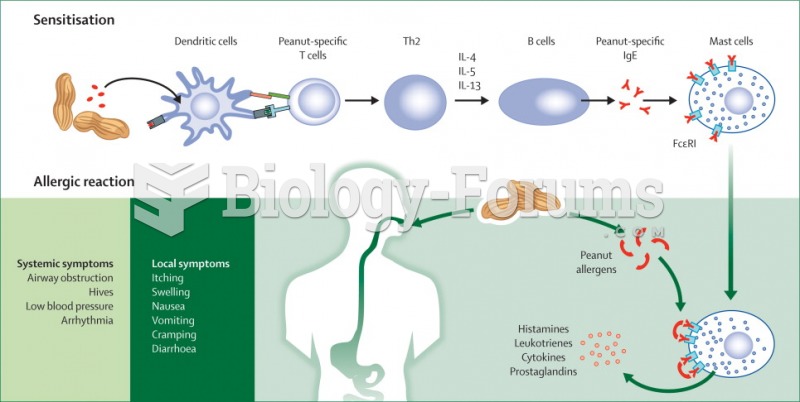|
|
|
Though the United States has largely rejected the metric system, it is used for currency, as in 100 pennies = 1 dollar. Previously, the British currency system was used, with measurements such as 12 pence to the shilling, and 20 shillings to the pound.
Lower drug doses for elderly patients should be used first, with titrations of the dose as tolerated to prevent unwanted drug-related pharmacodynamic effects.
The newest statin drug, rosuvastatin, has been called a superstatin because it appears to reduce LDL cholesterol to a greater degree than the other approved statin drugs.
Most fungi that pathogenically affect humans live in soil. If a person is not healthy, has an open wound, or is immunocompromised, a fungal infection can be very aggressive.
Not getting enough sleep can greatly weaken the immune system. Lack of sleep makes you more likely to catch a cold, or more difficult to fight off an infection.
 Pelvic inflammatory disease. Chlamydia or gonorrhea spreads up the vagina into the uterus and then t
Pelvic inflammatory disease. Chlamydia or gonorrhea spreads up the vagina into the uterus and then t
 Photograph of the flea that transmits Yersinia pestis to cause bubonic plague, called the oriental r
Photograph of the flea that transmits Yersinia pestis to cause bubonic plague, called the oriental r





